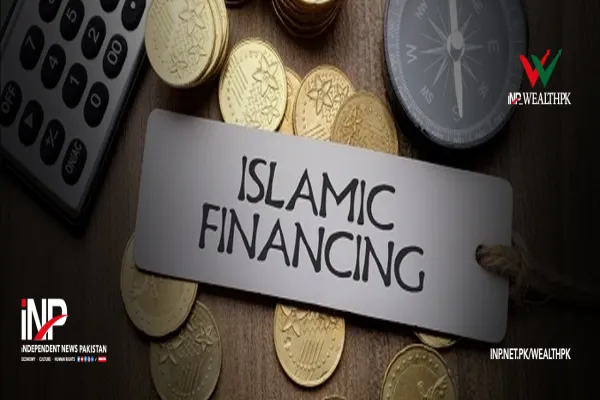i INP-WEALTHPK
Qudsia Bano
Adopting asset-backed finance models has become a more popular and effective tactic. This novel strategy, which is gaining popularity across several industries, seeks to reduce risks while promoting growth prospects, reports WealthPK. In asset-backed finance, a loan or credit line is secured through collateral, which is usually in the form of real estate, machinery, or accounts receivable. In contrast to conventional lending, which bases finance availability exclusively on creditworthiness, asset-backed models give the lenders more security, lowering the risk of default and improving loan process transparency. The Islamic banking sector accounts for the majority of Pakistan's diversified Islamic finance ecosystem (55%), with the remaining percentages coming from outstanding sukuk (37.6%), Islamic non-bank financial institutions (NBFIs) (7%), and takaful (0.4%). In general, the financial industry is underdeveloped. As of the end of 9M23, 36.1% of NBFIs had assets that complied with the Sharia law, according to a report by FitchRatings.
Over the previous five years, there has been a constant increase in the market share of deposits (22.5%; 16.6%) and assets (end-September 2023: 19.6%; end-2019: 14.9%) in the Islamic banking system. Because of increased development potential, government encouragement, and more lenient rules, several conventional banks are switching to Islamic banking. Pakistan, a country attempting to maintain its economic stability in the face of numerous obstacles, is seeing that asset-backed finance can help with important problems such as capital allocation inefficiencies, credit risk management, and liquidity limitations. Talking to WealthPK, Dr. Syed M. Abdul Rehman, Shariah Adviser SECP, said, "The real estate industry is one prominent area where asset-backed finance is being adopted. Developers and investors can obtain money more easily when property prices operate as real collateral, which speeds up development projects and boosts the economy. In addition to helping borrowers, this model gives the lenders more confidence, which strengthens the real estate market."
"Furthermore, asset-backed financing has a lot to offer Pakistan's agriculture industry, which is a major pillar of the country's economy. Utilizing land and equipment as collateral, the farmers and agribusinesses can get loans to upgrade facilities, make technological investments, and boost output. Food security and rural livelihoods are eventually strengthened by this influx of money, which promotes sustainable expansion in the agricultural value chain," he stated. "Asset-backed finance models cover cutting-edge areas like renewable energy and technology in addition to more conventional ones. Startups and SMEs (small and medium-sized enterprises) can access capital using collateral such as equipment, prospective revenue streams, or intellectual property. This encourages innovation and entrepreneurship within the economy," said Muhammad Ibrahim, an Islamic banking professional at Alfalah Bank.
According to Ibrahim, one of the primary advantages of asset-backed financing is its ability to enhance transparency and accountability in financial transactions. By aligning interests between the lenders and borrowers and providing clear valuation metrics for collateral, these models reduce asymmetric information and mitigate the adverse selection problem, thereby promoting trust and stability in the financial system. "The Government of Pakistan, cognizant of the transformative potential of asset-backed financing, has taken proactive measures to create an enabling environment for its proliferation. This includes regulatory reforms to streamline the process of asset valuation, establish robust legal frameworks for collateral management, and incentivize financial institutions to diversify their lending portfolios towards asset-backed instruments," said Ibrahim.
Credit: INP-WealthPk









